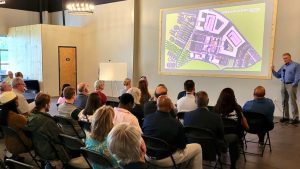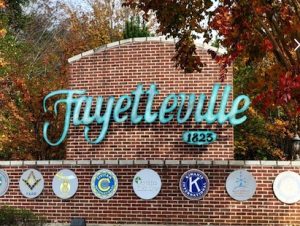The Fayetteville City Council at its Jan. 19 meeting will hear the first reading of a false alarm ordinance. The proposed ordinance was first considered last summer but was tabled for further review. The need for the ordinance is said to come from the fact that 80 percent of calls result in false alarms.
Fayetteville Police Dept. spokesman Steve Crawshaw said response to alarm calls represents a significant expenditure of police resources.
“It only makes sense that real time and money could be saved if alarm system users were more aware of this problem and took steps to prevent false activations,” Crawshaw said. “The city of Fayetteville has drafted an ordinance that will address the false alarm problem by requiring the responsible involvement of alarm users and alarm companies.
Crawshaw said the department answered 2,066 police-related alarm calls in 2011.
“Of those, 1,656 or approximately 80 percent, were false activations and were the result of operator error or a malfunctioning alarm system,” Crawshaw said. “The alarm call numbers for 2009 and 2010 also consistently show that 75-80 percent of the alarms that the Fayetteville Police Department responds to are false activations.”
The Fayetteville Police Department will advertise important dates and opportunities to learn about the ordinance requirements in the next several weeks.
Anyone with questions pertaining to the proposed ordinance is asked to contact Major Kevin Gooding, Patrol Division commander, at 770-719-4202.
Police Chief Steve Heaton in initially making the case for a false alarm ordinance last summer referenced a study of city alarm calls from April through June. During the three-month period police received 620 alarm calls. A total of 505 of those calls, or 81 percent, were false alarms.
Citing other data, Heaton said that, also during the period, two false alarms were recorded at 44 locations, three false alarms came from 20 locations and 28 locations had four or more false alarms.
Heaton Aug. 6 requested that the item be removed from the agenda to give him additional time to look at similar ordinances used by other cities. Heaton said he had been in contact with an expert from the Georgia Police Chiefs Association who had offered suggestions on how to make the ordinance stronger.
“There are things to consider like enhanced verification calling where the security alarm company makes the verification before officers go out,” Heaton said, adding that he wanted to make sure that the fine schedule is consistent with other localities. “This is not an attempt to generate revenue. It’s an attempt to decrease false alarm calls and fines.”












Leave a Comment
You must be logged in to post a comment.